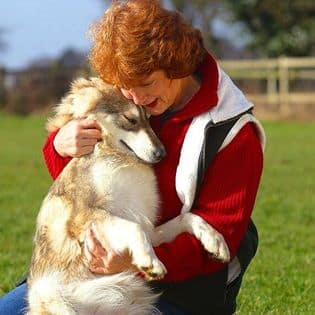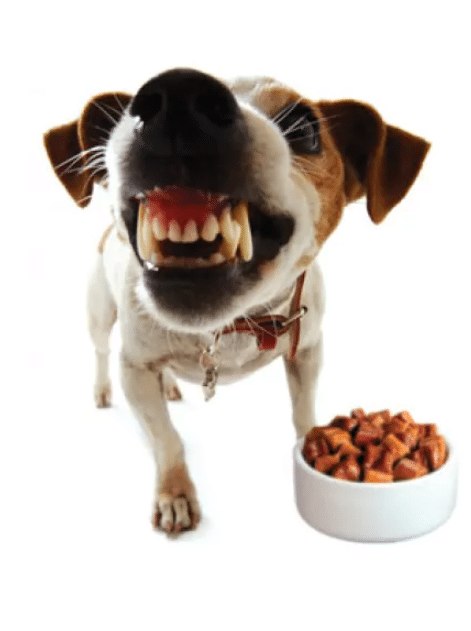
info@janfennellthedoglistener.com
Home / A Dog Will Test Your Leadership Credentials Many Times Every Day-by Jan Fennell

As we know, all social living species have to accept that there will be members at the top of the group, while others will be at the bottom, with the majority of the community at different levels somewhere between the two, and just as this applies to us, it is also true for our dogs.
An individual’s placement is not set in stone and will usually change with time, as individuals either increase their skills and consequently their value to the group, or their skills may diminish with age, or injury. Changes can also happen in an instant, for example, when there is a sudden loss of a member, or even the leader. This is the most worrying change to the group dynamic as nature does not accept a vacuum, and the group will struggle to find a replacement that will ensure the group’s well being.
In our modern world, it is very common for people to believe that their dog will challenge them for the ‘Alpha’ position in the family (pack) but this is not actually what the dog is doing. Instead it just needs to establish who has the role of leader within the family, the one that will be elected to make the difficult decisions, that ensure the survival of the whole family. Once we understand this, it becomes easy to convince a dog that the role can be safely left in our hands and is not for the dog to worry about and we do this without the need to use fear, force, or pain.
In truth, if a person does choose to use force, fear, or pain on a dog, in an attempt to show the dog that they are the ‘boss’, this does not convince the dog of the ‘status’ of the person, only that the dog is trapped with a cruel dictator, making it impossible to build a loving relationship between the person and the dog.
As always, we return to the natural world of all dogs to find the answers. Nature has designed them to constantly need to know where they stand in the hierarchy of the family, at all times. To ensure that this happens the dog will look to the way that the owner responds and subsequently behaves when faced with certain situations and these are the basis of the Amichien Bonding way of life. Amichien Bonding addresses ‘The 4’ ‘ areas of survival; (Food) what happens at feed time; (Danger) when there is any threat to the family; (Hunt) when going away from the home (on a walk) and the (Status) placement between the members of the family.
The problem is that because the dog is just checking with its family members as to who is leader, if it sees no one is acting as a leader should, then the dog assumes that it has no other option than to take up the responsibility itself and this is where the problems start. Even though the dog knows that it does not understand the world it is in, it has no other choice but to take on the role. However, because of its inability to work the problems out, in its panic, the dog’s behaviour will become undesirable and possibly unpredictable. Although there are many different manifestations of undesirable behaviour (that are not caused by medical issues) they are ultimately all caused by a dog’s distress at not being able to function properly as the group’s leader.
I am reminded that many years ago, I was walking along a road, in my home town of Fulham when I heard a tremendous crash and as I turned to see what had happened, I saw a motorbike sliding along the tarmac, while the rider was being propelled into a side street. There were many people around and while some stood stunned, there were a few people, me included who ran toward the rider, who came to a stop laying on his side, without moving. As I got to him, I could see another man bent over, about to put his hand on the rider’s shoulder and I feared that he would try to pull him onto his back, and in that instant, I knew that the ‘helper’ did not know even the most basic first aid knowledge and found myself shouting at him to leave the victim alone. The shock of my voice ringing out brought the man back to standing upright and I said that we should not move the rider, just ring for an ambulance.
I got to the young man on the ground and asked if he was okay and he mumbled that he was, at that moment another man stood over us and told me to take the rider’s helmet off, but I knew not to and looked up and told the well-meaning soul that it must stay on. I also called out to see if there was either a doctor or nurse about but no one came forward and as the second man repeated to take the helmet off I knew that having done a basic first aid course, I was the rider’s best chance and I fended off anyone from touching the rider. I remember praying for the ambulance to arrive, as more qualified people would be inside and just kept talking to the injured young man on the ground, as that was all I could do. I also, dismissed the comments coming from some of the onlookers as they mumbled, ‘What does a kid like you know?’ but I knew enough to not do more damage. I also, knew that I was ready to stop anyone else from coming close.
It seemed such an age but as Fulham Hospital, as it was called then, was only a short distance away the sound of the emergency bell was music to my ears and as the ambulance man ran over to us he put his arm out to block me said ‘leave this to me, dear’, I didn’t argue, I just felt relieved that someone better qualified could now take over. I wished the rider luck and I stepped back, pushed through the assembled crowd, and went on my way home.
There is only one species that will want to take the lead, even when they know that they have neither the skills nor experience, and that species is our own. All other animals readily accept that they are in need of help and will happily follow and support someone who clearly knows better.
Consequently, as always, we come right back to there being the need for the people in a dog’s life to step up to the role of leader and this will result in the dog finding us more than capable whenever it has to check our qualifications, and it is their need to repeatedly check those qualifications throughout each day that so many people confuse with the dog wanting to take the ‘lead’.
A very typical example of an occasion when the dog looks for guidance is when there is a perceived “threat” to the family in the form of someone coming to the front door. The dog will usually bark a warning to the rest of the family and wait for their reaction.
If the people in the dog’s life start to shout at the dog to ‘be quiet’ the dog neither understands nor comprehends this meaning, only seeing the reaction of the people as being them showing heightened emotion in the form of frustration, and fear, actually joining in with the dog, supporting the dog’s actions. This proves to the dog that the person concerned, far from being a leader, is acting like a frightened subordinate who the dog has to take responsibility for and defend.
It is for this reason that I decided to simply acknowledge the dog’s warning bark with a sincere ‘Thank you’. This is said in a calm way showing that dog that what it considers a ‘threat’ is of no consequence to us, and when the dog really believes in us then it will see our reaction and emotions and be content.
Of course, when introducing Amchien bonding to a dog that has developed some undesirable habits over an extended period of time, that dog may be reluctant to believe in us quickly and this has been allowed for with the whole ‘Thank-Look-Isolate’ routine, and once we act appropriately with this process, which is one of ‘the 4’, and combine it with the other three elements, then we are able to surround the dog with the security of the method.
Another positive outcome of this is the way that it naturally diminishes the need for the dog to overreact to life’s events and although it will always need to react we know why and how to reassure our dog that everything is just fine, which in turn results in our dog becoming a happy and willing partner.
Sincerely,
Jan



info@janfennellthedoglistener.com
© 2022 Jan Fennell The Dog Listener.
| Cookie | Duration | Description |
|---|---|---|
| cookielawinfo-checkbox-analytics | 11 months | This cookie is set by GDPR Cookie Consent plugin. The cookie is used to store the user consent for the cookies in the category "Analytics". |
| cookielawinfo-checkbox-functional | 11 months | The cookie is set by GDPR cookie consent to record the user consent for the cookies in the category "Functional". |
| cookielawinfo-checkbox-necessary | 11 months | This cookie is set by GDPR Cookie Consent plugin. The cookies is used to store the user consent for the cookies in the category "Necessary". |
| cookielawinfo-checkbox-others | 11 months | This cookie is set by GDPR Cookie Consent plugin. The cookie is used to store the user consent for the cookies in the category "Other. |
| cookielawinfo-checkbox-performance | 11 months | This cookie is set by GDPR Cookie Consent plugin. The cookie is used to store the user consent for the cookies in the category "Performance". |
| viewed_cookie_policy | 11 months | The cookie is set by the GDPR Cookie Consent plugin and is used to store whether or not user has consented to the use of cookies. It does not store any personal data. |